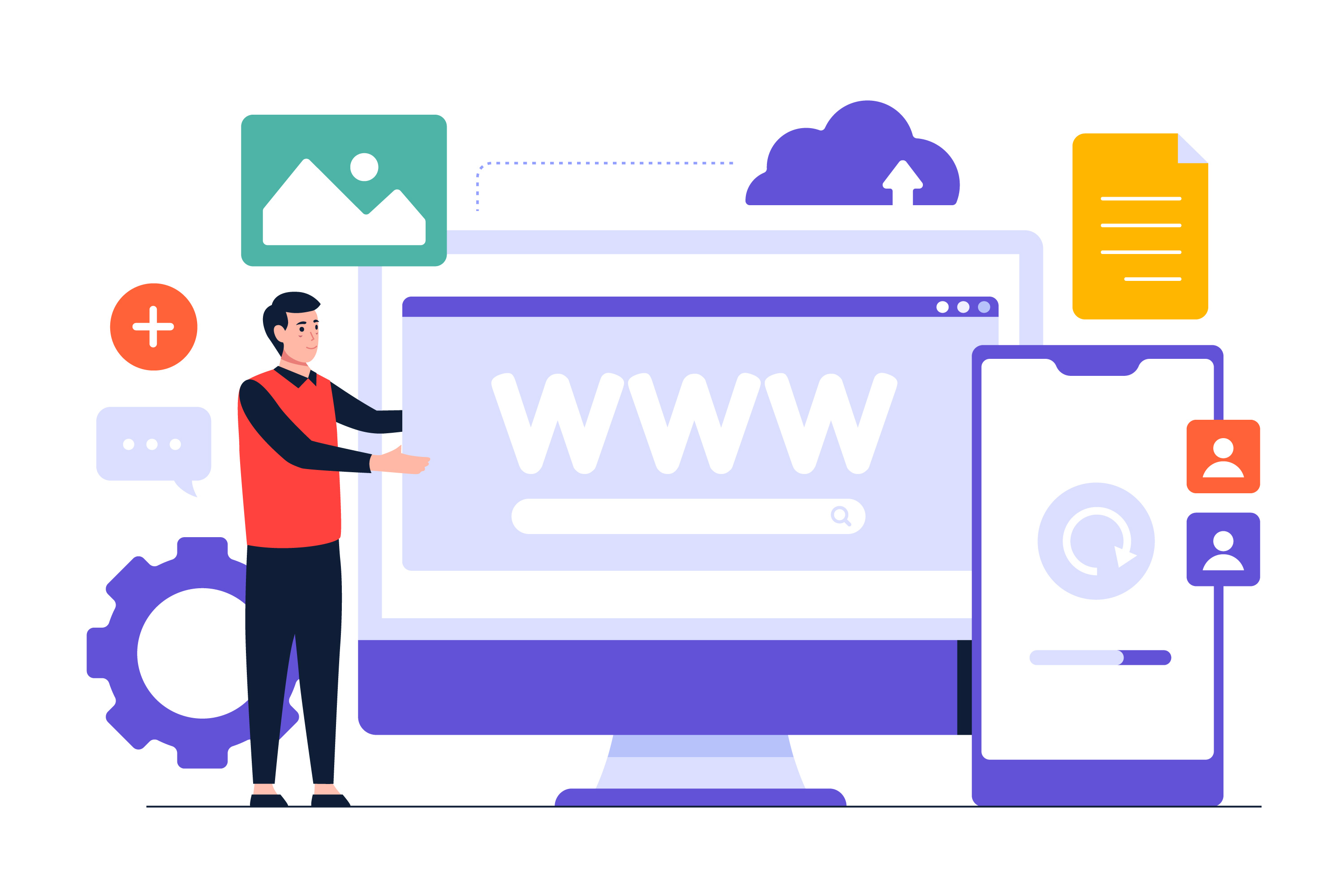

Updated:
May 3, 2025
Published:
April 27, 2025
Best app development frameworks for mobile and native apps
Choosing the right app development framework plays a crucial role in the success of your app. Whether you want to develop a hybrid app for Android and iOS or a cross-platform app, the framework decisively determines the performance, flexibility, and future scalability of your application. In the fast-paced area of mobile app development, it is therefore crucial to select the right programming language and framework to make the development process efficient and targeted.
As experienced App development agency we offer you the support to determine the ideal framework for your project. In this article, we'll present you the best frameworks for developing an app and explain the advantages and disadvantages of each framework. We'll look at the ideal applications to help you find the right solution for your project — whether for a single platform or a cross-platform app that works equally with Android and iOS.
What is an app development framework and why is it so important?
A framework app development is basically a collection of tools and ready-made code that help developers build apps faster and more efficiently. It provides the basic building blocks of an app so developers don't have to write every function from scratch. Instead of creating new code structures every time, developers can rely on proven, standardized solutions, which significantly speeds up the entire development process.
App development frameworks offer the decisive advantage that they make app development more efficient, secure and scalable. They provide tested code that helps prevent common mistakes and make it possible to develop the app on various platforms (such as iOS and Android) using a single code base. This not only saves time, but also ensures higher performance and a better user experience.
A good example of a popular framework is React Native, which is based on JavaScript and allows you to develop mobile apps for multiple platforms simultaneously. When you Programming the Android app If you want, React Native is an excellent choice. Another widely used framework is Flutter, which works with the Dart programming language and is particularly known for its high performance and flexible design. Both frameworks offer great opportunities for mobile development and make it easy to work with CSS and JavaScript.
Selection criteria for the best app development frameworks
Choosing the right app framework is critical to the success of your project. Here are a few key factors to consider when choosing a framework:
Cross-platform compatibility
Make sure that you can run your app on multiple platforms thanks to the framework. For an efficient Cross platform app development Frameworks such as React Native or Flutter are particularly recommended, as they offer a uniform code base for mobile apps on iOS and Android as well as for web apps.
Power and speed
Make sure the framework performs well to ensure a fast and seamless user experience. Native apps usually perform better, but for many projects, hybrid apps can also work great with the right frameworks.
Community Support
Strong community support is particularly important, as it helps you find quick solutions to problems. Popular frameworks such as React Native and Flutter benefit from an active community that is constantly developing new plugins and extensions.
scalability
Think about how your app could grow in the future. Choose a framework that helps you build multiple platforms and that easily scales as your needs grow.
Compatibility with web apps
If you also want to develop web apps, it's important to use a framework that enables seamless integration between mobile and web applications.
An overview of the top X frameworks for developing an app
Choosing the right framework is crucial for the success of an app. Here we'll introduce you to the best frameworks that play an important role in app development today. These frameworks offer various benefits, depending on the needs of your project. We'll look at the most popular frameworks and explain why they're good for different use cases.
1. Flutter
Flutter is a framework developed by Google that is used specifically for mobile app development for iOS and Android. It uses the Dart programming language and provides the ability to use a single code base for multiple platforms. Flutter is one of the leading app development frameworks because it helps developers build mobile apps that are both fast and performant.
- Key strengths:
- Very good performance thanks to the use of native components that make optimal use of the devices' native functions.
- Quick development thanks to Hot Reload.
- Rich libraries and widgets for excellent UI design.
- Typical use cases:
- Develop an app for iOS and Android.
- Ideal for Progressive Web Apps (PWA) as it provides web support.
2. React Native
React Native, developed by Facebook, is a widely used framework that uses JavaScript and React for mobile app development. It enables developers to build apps that are suitable for both iOS and Android and is one of the best app development frameworks when it comes to cross-platform frameworks.
- Key strengths:
- Easy integration of native modules for hybrid development.
- Large community and numerous plugins that speed up development.
- Enables you to create app developments for multiple platforms at the same time.
- Typical use cases:
- Create cross-platform apps for Android and iOS.
- Particularly suitable for startups and apps with rapid market launch.
3rd Swift
Swift is the programming language developed by Apple and the preferred framework app development for iOS. It offers high performance and is used to develop native apps.
- Key strengths:
- Optimum performance on Apple devices.
- Direct integration with the iOS ecosystem, which guarantees a high user experience.
- Very well documented and supported.
- Typical use cases:
- Development of native apps exclusively for iOS.
- Particularly suitable for apps that make heavy use of iPhone or iPad hardware functions.
4th Kotlin
Kotlin is a modern programming language for Android development that has been recognized as the official language for Android app development by Google. It has many advantages in terms of simplicity and error prevention.
- Key strengths:
- Strong interoperability with Java.
- Higher security and less error rate compared to Java.
- Widely used and well-documented.
- Typical use cases:
- Development of native Android apps.
- Ideal for larger, more complex applications.
5. xamarin
Xamarin is a framework from Microsoft that can be used to build mobile apps in C# and .NET. It is suitable for hybrid development because it uses a single code base for Android, iOS, and Windows. Xamarin is often used by Android app agencies that want to operate multiple platforms at the same time.
- Key strengths:
- Ability to reuse code across platforms.
- Strong integration with Microsoft tools and services.
- Good performance and scalability.
- Typical use cases:
- Development of apps for iOS, Android and Windows.
- Ideal for companies that use Microsoft technologies.
6th Ionic
Ionic is a framework app development that is based on web technologies such as HTML, CSS and JavaScript and is used to create mobile apps and progressive web apps (PWA). It is particularly popular for hybrid frameworks as it enables rapid development that is suitable for multiple platforms.
- Key strengths:
- Provides an easy way to build cross-platform apps.
- Enables rapid development and prototyping through web technologies.
- Supports the creation of PWAs.
- Typical use cases:
- Mobile apps and PWAs.
- Particularly suitable for companies that want rapid app development for multiple platforms.

Flutter: Why it's becoming increasingly popular with modern apps
Flutter has established itself as one of the most important frameworks for developing mobile applications. This open-source framework allows developers to build mobile apps that run on multiple platforms — without having to write code for each platform separately. Flutter is based on the Dart programming language and offers a fast, efficient way to develop high-performance apps.
Key benefits of Flutter:
- High performance: Thanks to its native components, Flutter provides almost unmatched performance that is comparable to native apps. This makes it an excellent choice for demanding mobile applications.
- Nice UI: Flutter offers an incredibly customizable and appealing user interface (UI). The extensive collection of widgets and flexibility in design ensure an appealing user experience.
- Cross-platform: A unique code that works on both Android and iOS — Flutter saves development time and costs while providing a consistent user experience across both platforms.
Typical applications where Flutter shines:
- MVPs (Minimal Viable Products): Flutter is particularly popular with startups who want a quick time to market because it provides an efficient way to build a mobile app and test it on multiple platforms.
- Scalable apps: Companies that prefer cross-platform app development frameworks use Flutter to use a consistent code base for both iOS and Android.
Success stories: Many successful companies now rely on frameworks such as Flutter to develop their mobile applications. Prominent users include companies such as Alibaba, Google Ads, and Hamilton, which benefit from the benefits of this innovative framework.
React Native: The classic for cross-platform apps
React Native has established itself as one of the best-known and most widely used tools and frameworks for creating an app. Developed by Facebook, this native framework allows developers to build an app for various platforms using a single code base. Since its launch, React Native has revolutionized mobile app development and remains one of the most popular frameworks today.
Key benefits of React Native:
- Large community: React Native benefits from a huge community of developers who regularly provide new libraries and plugins, which significantly speeds up mobile app development.
- Hot Reloading: One of React Native's most outstanding features is hot reloading. This allows developers to see changes immediately without restarting the app, which significantly speeds up the development process.
- Rich libraries: Through a variety of ready-made components and libraries, developers can create mobile apps that work at a high level both visually and functionally.
Typical use cases where React Native is ideal:
- Social apps: React Native is particularly suitable for developing social media applications that need to run on multiple platforms. The framework offers fast performance and a more native look and feel, which is crucial for such apps.
- E-commerce: React Native is an excellent choice for building e-commerce platforms because it ensures rapid development while remaining scalable.
- Internal business apps: Companies that want to build a mobile app quickly without investing a lot in various code bases for iOS and Android often choose React Native to implement cross-platform solutions.
Comparison to Flutter and React Native: Although Flutter and React Native both offer cross-platform solutions, React Native has a clear advantage due to its long history and large developer community, particularly when developing applications for iOS and Android.
Native frameworks: Swift and Kotlin versus cross-platform
Swift and Kotlin are the preferred programming languages for native app development on iOS and Android, respectively. Both offer high performance and tight integration into the respective platforms.
Swift was developed by Apple specifically for iOS and guarantees optimal use of iOS functions. Kotlin is Google's preferred language for Android apps and offers many benefits, such as simple syntax and improved error prevention compared to Java.
Native development means creating apps specifically for a platform, giving you maximum performance and access to platform-specific features. Cross-platform development makes it possible to develop for multiple platforms with a single code base, which saves time and money, but can sometimes involve sacrifices in performance and functionality.
When native development makes sense:
- Performance-intensive apps (e.g. games, graphic-intensive applications)
- Platform-specific featuresthat are not supported by cross-platform frameworks
- Best user experience, as the app is optimally adapted to the platform
Comparison: Native vs. Cross-Platform
FeatureNative (Swift/Kotlin) Cross-platform (Flutter/React Native)performanceHighest performanceImproved performance for complex appsPlatform-specific featuresFull control and access to native APISRestricted access to native features Development timeLonger, separate development for each platformFaster development, one code baseuser experienceBest UX for iOS or AndroidPossibly less optimized
For a native app with special performance requirements or platform-specific functions, development with programming languages and frameworks such as Swift or Kotlin is the better choice. Frameworks such as Flutter or React Native are a good solution for simpler applications that need to be developed quickly and run on multiple platforms.
Other interesting frameworks: Xamarin, Ionic, and more
In addition to well-known frameworks such as Flutter and React Native, there are also other frameworks that are well suited for specific use cases.
Xamarin is particularly popular for developing enterprise apps. It allows you to use a single code base for iOS, Android, and Windows. Companies that already rely on Microsoft technologies in particular benefit from integration into the .net environment. Xamarin is ideal for mobile apps that are supposed to run on multiple platforms but need to be closely integrated into the Microsoft world.
Ionic is based on web technologies such as HTML, CSS and JavaScript and is ideal for developing a web app and progressive web app (PWA). It allows developers to build mobile apps that run on all platforms without sacrificing performance too much. Ionic is a good choice, particularly for cross-platform applications that need to be implemented quickly and cost-effectively.
Other frameworks worth mentioning include PhoneGap and Sencha, which can also play to their strengths in certain scenarios.
Choosing the right framework depends heavily on the main types of frameworks, the planned features of the next app, and the specific requirements of your project. Each of these frameworks has unique benefits that can make the difference in app development.
Decision support: Which app framework is right for your project?
Choosing the right framework is crucial for the success of your app development. Here are a few tips on how you can make the right decision:
- Flutter is particularly suitable for platform-specific apps where you need high performance and an appealing user interface. If you want to develop a mobile app that works on both iOS and Android, Flutter is an excellent choice.
- React Native is ideal when you need a quick platform-specific app with a large developer community and a variety of pre-built libraries. It enables rapid development and is well suited for startups and companies that want to bring a mobile app to market quickly.
- For very performance-intensive apps or apps with specific native features, such as an app that interacts closely with a device's hardware, native frameworks such as Swift (for iOS) and Kotlin (for Android) the best choice. These offer the best performance and flexibility, especially for performance-intensive applications.
- Ionic is a framework that is based on web technologies such as HTML, CSS, and JavaScript. It is ideal for web apps and platform-specific appss quick to develop and is particularly useful if you have a limited budget and a short period of time.
The choice therefore depends on the specific requirements of your project: Do you want rapid development for multiple platforms with a platform-specific framework, or do you need a framework that offers specific native features? If you are unsure which framework best suits your project, an iOS app agency like KNGURU will help you choose the right framework for your goals. To be able to better estimate the approximate costs for your app project, you can also use a Cost calculator app use to get an idea of the budget.
Conclusion: The right app development framework as a success factor
Choosing the right framework for app development is critical to the long-term success of your application. Whether you want to work with cross-platform frameworks like React Native or Flutter, or prefer a native solution, each framework offers specific benefits. An informed decision makes for a powerful, scalable, and easy-to-use app that meets the needs of your users.
Let's find the right framework for your app development together. KNGURU is your partner when it comes to finding the right frameworks for App development Leipzig select and implement them professionally. Get in touch with us today!


Zwischen Agenturalltag und Startup - unser Blog
In unserem Blog teilen wir Tipps rund um das Thema Appentwicklung, Startups und einige verrückte Geschichten aus unserem Agenturalltag mit euch.
Book yours free Video call
Do you want to talk to our team about your project and just hear what we could do for you? Then simply book a free video call with us now!







.gif)